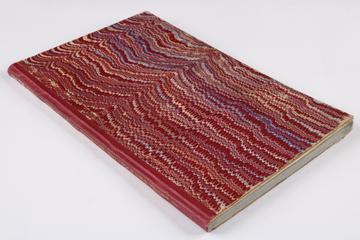
Henson, Gravener 1785 - 1852
- Nationality:
- English; British
(1785-1852), workers' leader and author
Gravener Henson was born in Nottingham in 1785 but nothing else is known about his origins. Henson became a journeyman framework knitter, but subsequently worked with the local point net lace industry. In 1809 Henson became involved in his first strike and probably spent some time in prison in 1810 because of the part he played. In 1811 he attempted, unsuccessfully, to prosecute four hosiers under the Combination Acts, which were intended to cover employers as well as workers, and in 1812 made the first of many attempts to secure parliamentary regulation of the hosiery and lace trades and the organization and co-operation of their workers throughout Britain.
In 1816 Henson acted successfully against two truck-paying hosiers, and in 1817 spent eight months in Cold Bath Fields Prison in London, having been arrested on suspicion of treasonable practices as local and central authorities found difficulty in distinguishing between the constitutionalism of the Hampden clubs and the insurrection of the Pentrich rebels. He experienced further misfortunes in 1818, when he spent some time in St Mary's workhouse, Nottingham. Afterwards he resumed his industrial campaigns, assisting in the organization of a strike of midlands framework knitters in 1821, and in 1823 undertook another ambitious campaign to secure the parliamentary regulation of the hosiery and lace trades.
In 1831 he published his History of the Framework Knitters, his greatest practical achievement, and in December of that year returned briefly to the political arena, as treasurer of a local committee that sought a pardon for convicted Reform Bill rioters. Henson's earlier militancy confirmed him in E. P. Thompson's judgement as one of three truly impressive English working-class leaders in the period 1780–1832. When giving evidence to the select committee on postage in 1838 he was clearly disillusioned in many of his earlier aspirations. In the 1840s, when local directories were variously describing Henson as a writer and an accountant, he continued to press for government legislation on the hosiery and lace trades but was disappointed at the outcome of the 1844 inquiry.
Henson married Martha Farnsworth (who predeceased him) at St Mary's, Nottingham, in 1813. He died on 15 November 1852 at Broad Street, Nottingham, of asthma and paralysis, with his hopes unfulfilled.